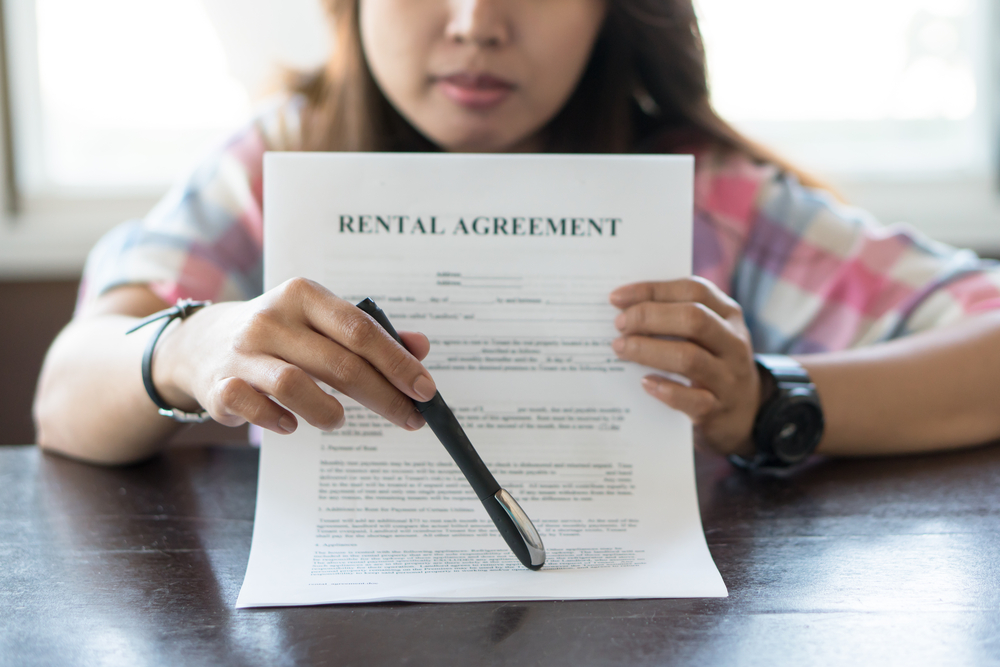
As a landlord, it’s important to protect yourself with insurance for your rental property. Consider protecting yourself and your tenants from liabilities if any unexpected accidents happen on the premises.
Look, business owners will agree, you can’t eliminate all of your risk. The key is to effectively manage your risk. Insurance is a tool to do just that.
In this article, we’ll discuss what landlords need to look out for when navigating through rental property insurance policies so they can secure both themselves and their tenants with peace of mind and protection.
Understand Your Liability Risks as a Landlord
It’s important to understand the liability risks that come with the territory. While being a landlord can be a great source of income, it also comes with a unique set of responsibilities.
For example, if a tenant, their guests or anyone else sustains an injury on your property, you could be held liable for any medical bills or damages. Some of the common claims we see are slips, trips and falls as well as dog bites. We also see liability when fire spreads to another structure or unit within a building.
Ultimately, if there are damages or injuries, you’ll likely be named in the lawsuit. Attorney’s name everyone who could potentially be liable. If you are named, you are going to have defense costs. It doesn’t matter how innocent or guilty you are. Like it or not, that’s how our justice system works.
An LLC Doesn’t Guarantee Protection
Many landlords think just because they filled out a form and paid $100 for an LLC they can’t be personally responsible. FALSE. We’re not attorney’s and this isn’t legal advice but you can go confirm this with your legal counsel.
For example, have you ever put any of your own money into your LLC but didn’t properly document it? Have you ever used money from the LLC for something personal? That is what is called commingling funds. This may demonstrate that you and the LLC are not separate entities and therefore, open you up to be personally liable.
There are several ways to pierce the LLC veil and hold LLC members personally liable. If you own rental property, we recommend you get a personal Umbrella policy. This may serve as an added layer of protection for your personal income and assets.
The Kaiser Law Firm, P.C. has a great article on Piercing the Veil and can help answer other questions you may have.
Choose an Adequate Liability Limit
As we just discussed, you can be liable for injuries as well as property damage. Many landlords will choose liability limits that are not sufficient to cover the potential costs. For example, $100,000 can fall way short. Consider a $500,000 Liability limit or higher. The difference in cost between a $100k and $500k limit is surprisingly small. It may only be an extra $100/yr. Don’t go cheap. Properly insure yourself and your investment.
Confirm Tenants are Properly Insured
We’ve discussed our recommendations for your insurance policy as the landlord. Now, let’s look at the insurance your tenants have. First, you’ll want to make sure your tenants have insurance. Next, it’s important to verify they have enough coverage. Often times, tenants will choose the lowest possible Liability coverage. This can vary by insurance company and state.
We recommend you require them to carry a $300,000 Liability limit.
Become an Additional Interest on Your Tenant’s Renters Policy
There are a couple of ways to do this:
- Get listed as an additional interest on your tenant’s renters policy. You may be able to get listed as an additional interest without having an insurable interest. In plain speak, this means you won’t have any additional insurance coverage but you will be notified if their policy lapses, allowing you to get out in front of any potential uncovered claims. Without becoming an additional interest, you’ll have no idea if your tenant lapses their policy.
- Get listed as an Additional Insured on your tenant’s renters policy. This means if you are sued, you are covered under your tenants policy first. This keeps the liability and insurance claim off of you. At least up to a point. If their policy limits get used up, your policy will coverage will then kick in.
Liability With Dogs
If you allow dogs you need to make sure your tenant has a policy that doesn’t exclude coverage for dogs. Some policies will exclude coverage for certain breeds while other policies will have an Animal Liability Exclusion which will exclude coverage for all dogs.
Knowing the difference gets pretty complex with a lot of legal speak in the insurance policy. Your best bet here is to obtain a copy of your tenants policy and send it to your insurance agent so they can advise you on what is covered and what’s not.
Dog breed restrictions vary but here are some common ones:
- Alaskan Malamute
- American Staffordshire Terrier
- Akita
- Doberman Pinscher
- German Shepherd
- Great Dane
- Pit Bull
- Presa Canario
- Rottweiler
- Siberian Husky
- Wolfdogs and wolf hybrids
Other Ways to Prevent Losses
Other than insurance for your rental property, there are many other ways you can be proactive and manage your risk.
- Perform routine checks on the property.
- Hire a property management company if you don’t have time to check in on the property and handle small repairs.
- Make regular care and routine maintenance a requirement of your lease allowing you to end a lease early if a tenant doesn’t comply. The earlier you can cut off a bad situation, the less risk you’re going to have.
- Thoroughly screen tenants before renting to them.
- Document everything and include the renter.
- Know the landlord laws in your state.
We hope you’ve found this article on insurance for your rental property useful. If you have more questions or would like a quote, we would love to chat!
Policy Review Tool
We’ve created a free Policy Review Tool that allows you to upload your policy from your existing carrier for review. Our experts will pick through the fine print and give you the nuts and bolts of your coverage and if there are any coverage gaps.
Of course, we’d love to earn your business if we do a great job! This is our way of providing value first. Check out what our customers are saying in our Google Reviews.
Related Articles
5 Rules Every Landlord Should Live By
What is an Umbrella Insurance Policy?
Does Homeowners Insurance Cover Sump Pump Backup?
